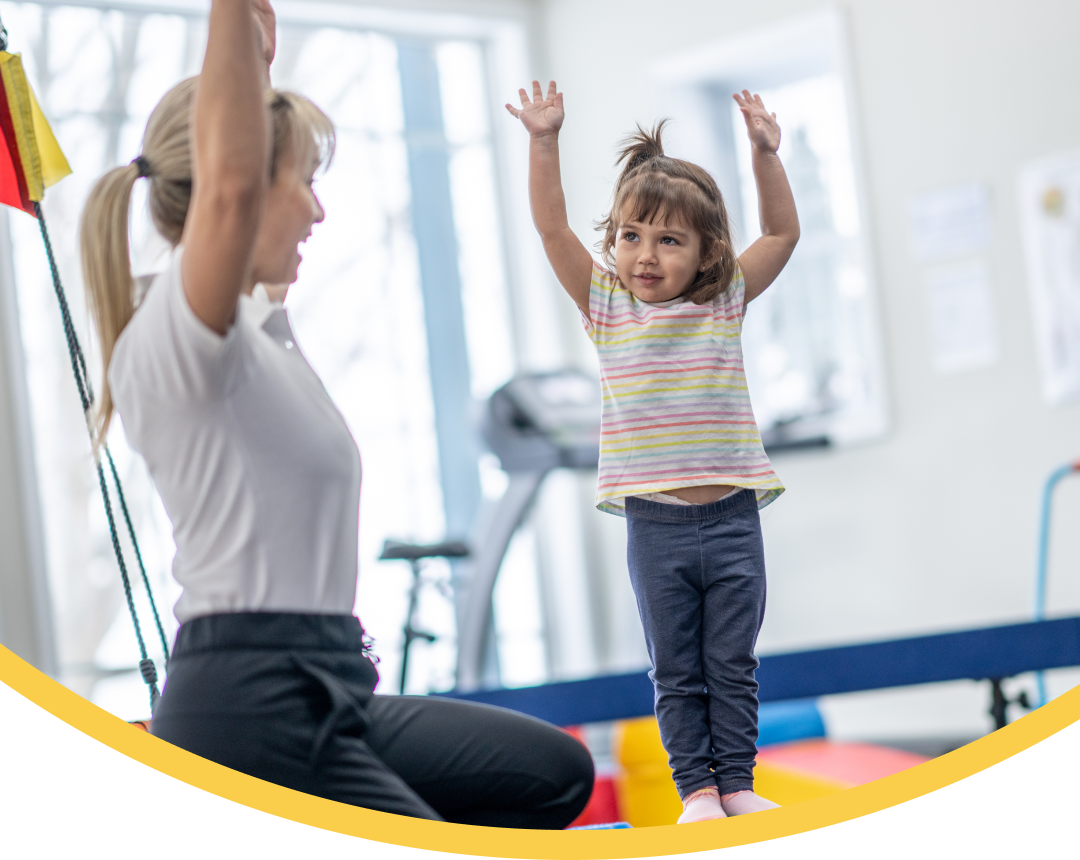Paediatric Occupational Therapy in the NDIS
A paediatric occupational therapist is an allied health professional who focuses on promoting independence and wellbeing by empowering and enabling children and teens to participate in the everyday occupations of life.
Our Melbourne occupational therapists (OTs) have a holistic and person-centred focus for kids of all ages. OTs can assist you and your loved ones to develop independence in the ways that matter to the individual.
Our pediatric OTs (occupational therapists) are equipped to support individuals from the ages of two upwards with a range of diagnoses. They are specifically trained to support NDIS participants through:
- Paediatric and Adolescent Occupational Therapy
- Occupational Therapy for Kids, Teens, Children and Babies
- Mental Health Occupational Therapy
- Functional Assessments
- Sensory Assessments and Intervention
- Assistive Technology prescription, application work and training
- Simple to Complex Home Modification prescription and application work
- Accommodation Support
- Specialist Disability Accommodation (SDA) recommendation and report generation
- Specific ongoing disability-related intervention and progress reports for NDIS plan reviews.

Occupational Therapy for Children, Kids, Teens & Adolescents
Tashacare occupational therapists work with children and adolescents to address issues affecting their participation in everyday life, particularly in the aspects of self-care, productivity, and leisure.
We will liaise with you to implement practical interventions that will suit your child and your family. We will also work collaboratively with other stakeholders such as childcare facilities, schools, teachers, support staff and other allied health professionals to ensure that strategies and interventions are implemented, not only at home, but in the classroom and anywhere else your child spends their time. Liaising with other allied health professions also ensures that a cohesive and consistent multidisciplinary approach is used to address your child’s barriers.
Our occupational therapists can support a range of diagnoses, such as:
- Autism Spectrum Disorder (ASD)
- Down Syndrome
- Cerebral Palsy
- Developmental delays
- Attention Deficit Hyperactivity Disorder (ADHD)
- Dyslexia
- Intellectual disabilities
They can help children, adolescents and their families develop in any of the following areas:
- Fine motor skills
- Gross motor skills
- Sensory processing and modulation (how we take in and interpret sensory information from our environment)
- Visual perceptual processing (how our brain makes sense of what our eyes are seeing)
- Proprioception (our awareness of where our body is and how it moves)
- Emotional regulation
- Self-care routines
- Sequencing
- Planning
- Routine
- Feeding/eating
- Toileting
- Play and social skills
- Confidence and self-esteem
Young Children
For young children, our occupational therapists use play-based therapy to target and address the child’s occupational therapy goals and reach their developmental milestones. We aim to create a fun and enjoyable environment during therapy by using toys and games to teach and develop crucial skills for later life. Additionally, our occupational therapists provide support and information to parents on how they can continue to address the barriers at home and community.
Adolescents
For adolescents, an age appropriate therapy approach is taken. Therapy for adolescents often focuses on developing life skills such as, financial management, cooking, cleaning and maintaining a routine to increase independence and self-confidence as they transition into adulthood.
Assistive technology
Assistive technology can also be a part of our occupational therapy service for children and adolescents. Our occupational therapists will conduct assessments, identify appropriate assistive technology needs, organise trials, complete NDIS applications (where required) and offer training to ensure the items are used safely and appropriately.

